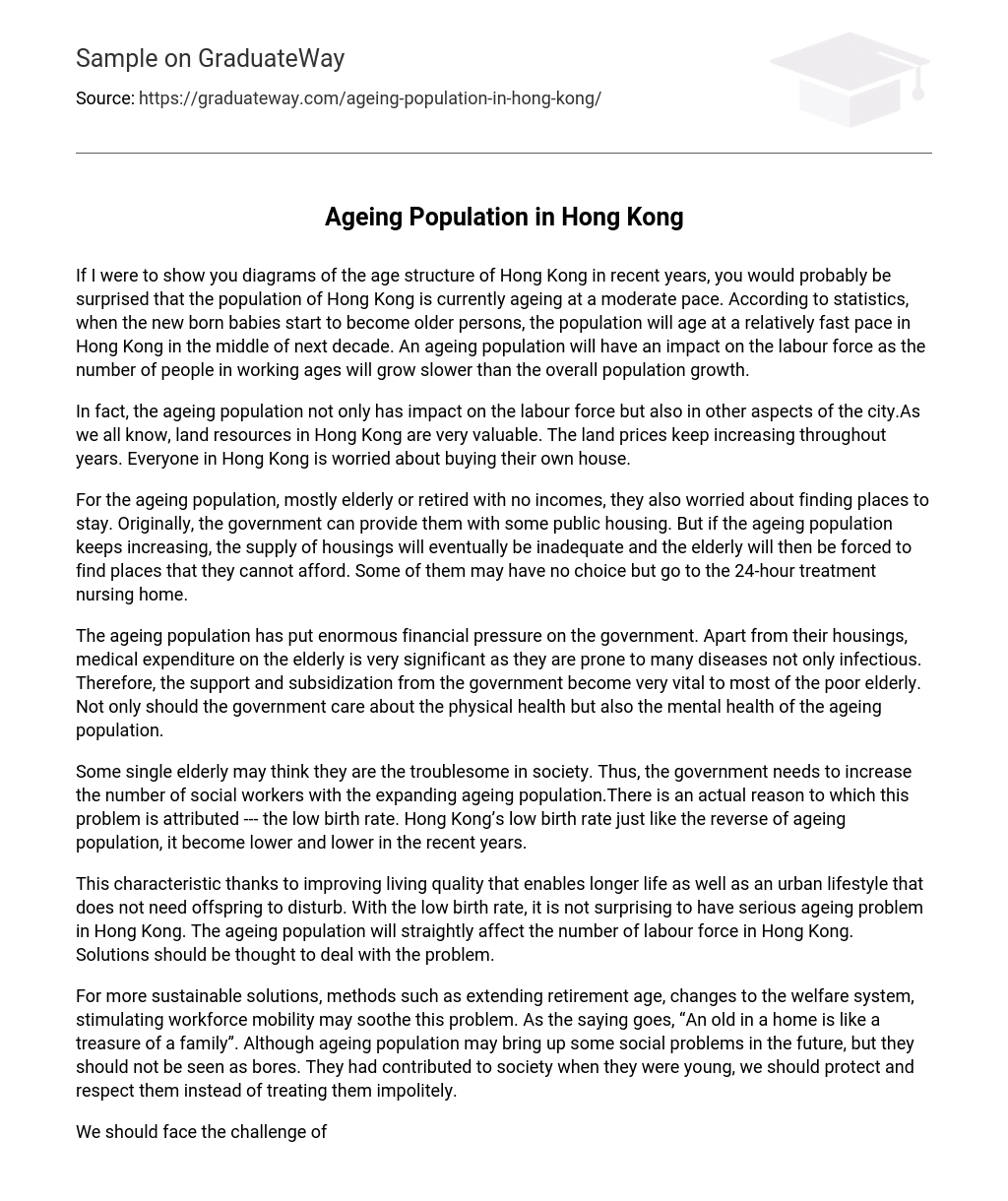Presenting diagrams of Hong Kong’s age structure in recent years would likely reveal that the population is currently undergoing moderate aging. Statistics show that as newborns grow older, the rate of aging in Hong Kong is expected to increase around the middle of the next decade. This demographic shift will impact the labor force as the growth of individuals within working age range will fall behind overall population growth.
The ageing population has implications for both the labor force and various aspects of the city. Given Hong Kong’s valuable land resources and the ongoing rise in land prices, securing a personal house is a shared concern among all residents of Hong Kong.
The ageing population, consisting of the elderly and retired individuals with no income, are concerned about finding suitable accommodations. In response to this issue, the government initially offers public housing options. However, if the ageing population continues to grow, there will eventually be a lack of housing choices. As a result, the elderly may have to look for affordable alternatives or even consider residing in a 24-hour treatment nursing home in certain cases.
The government is under significant financial pressure due to the rising number of elderly citizens. This strain is further intensified by the high medical costs for seniors, who are more prone to various illnesses, including non-infectious diseases. Consequently, government assistance and subsidies play a crucial role in supporting older individuals living in poverty. Therefore, it is imperative for the government to prioritize the physical health and mental well-being of the aging population.
Due to the increasing number of elderly individuals in Hong Kong, some single seniors may feel like they are burdensome to society. As a result, there is a need for the government to increase the number of social workers. The main cause of this problem can be attributed to the declining birth rate in Hong Kong, which has been steadily decreasing over time.
Improved living conditions and urban lifestyles have led to longer life expectancies and a decrease in the need for having children. As a result, Hong Kong is currently experiencing a significant aging problem due to its low birth rate, which directly affects the size of its workforce. Finding solutions to this issue is crucial.
To tackle the challenge of an aging population, it is proposed that sustainable actions should be taken. These actions may involve prolonging the retirement age, modifying the welfare system, and promoting job mobility. It is crucial to recognize the significant contributions made by older individuals to society, as reflected in the saying, “An old in a home is like a treasure of a family”. Instead of viewing them as burdensome, they ought to be safeguarded and esteemed instead of being treated with disrespect.
In the future, it is crucial for all of us to unite and address the challenge presented by an ageing population.





